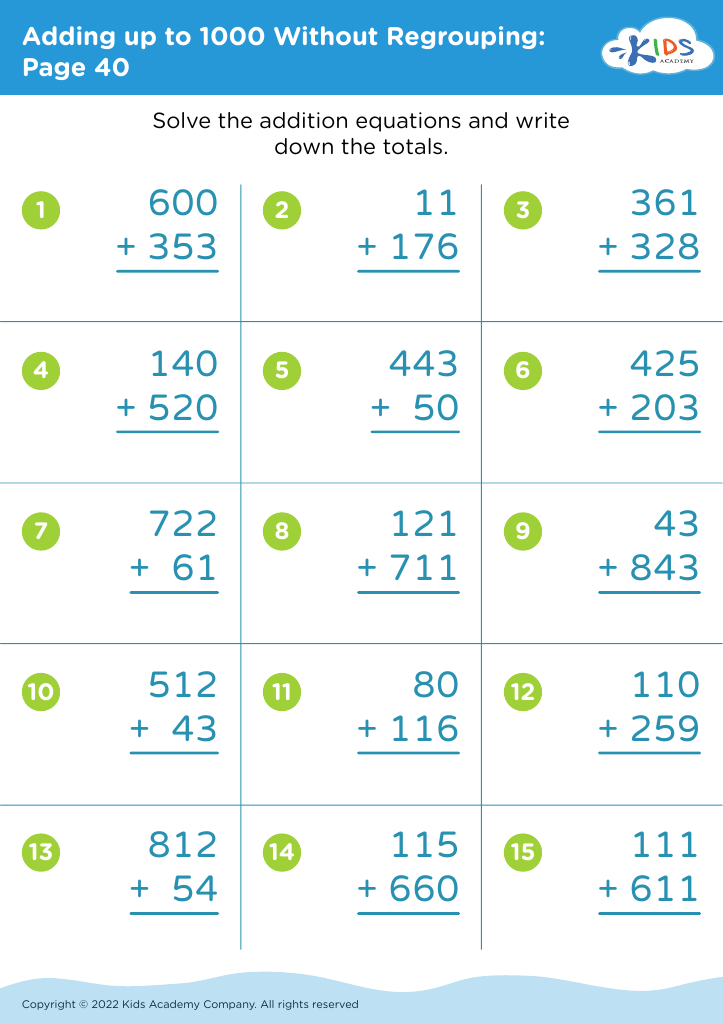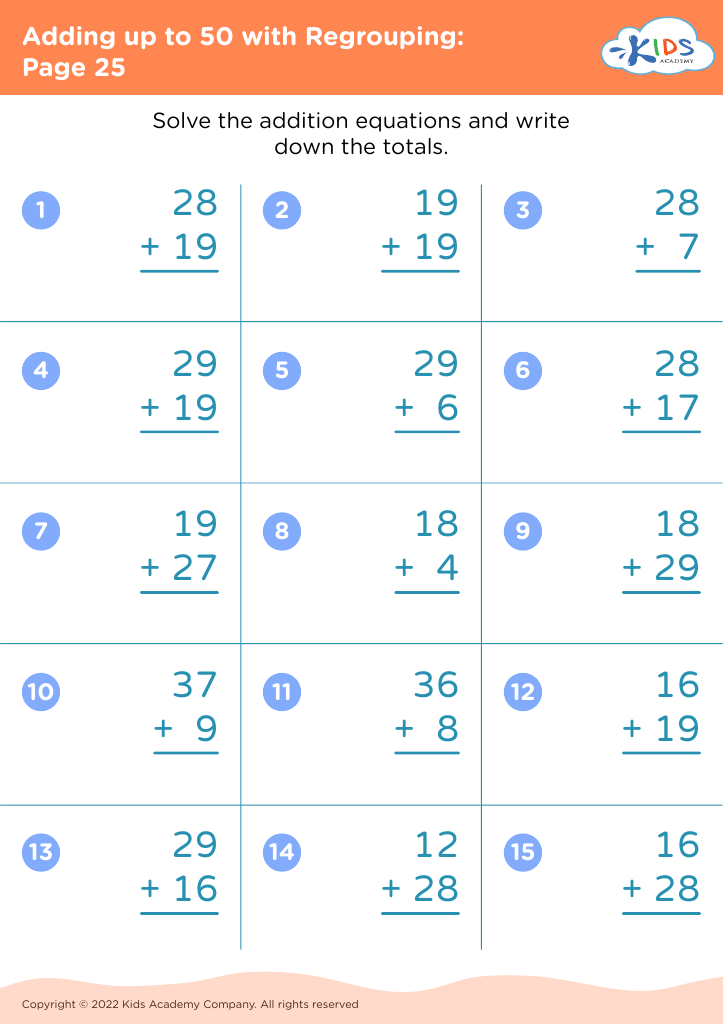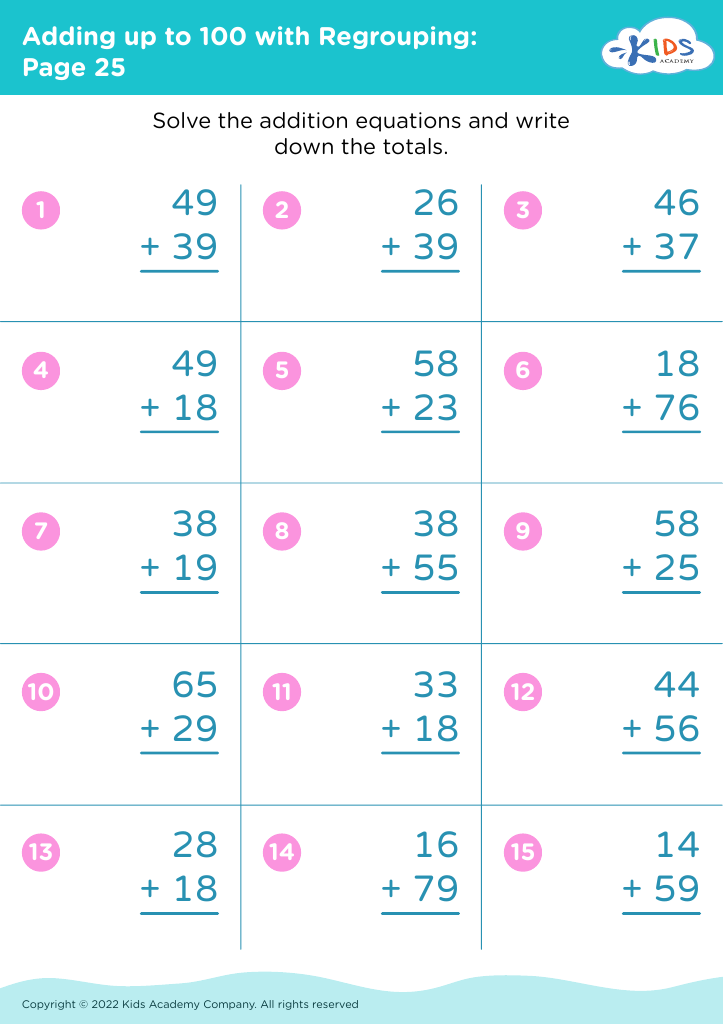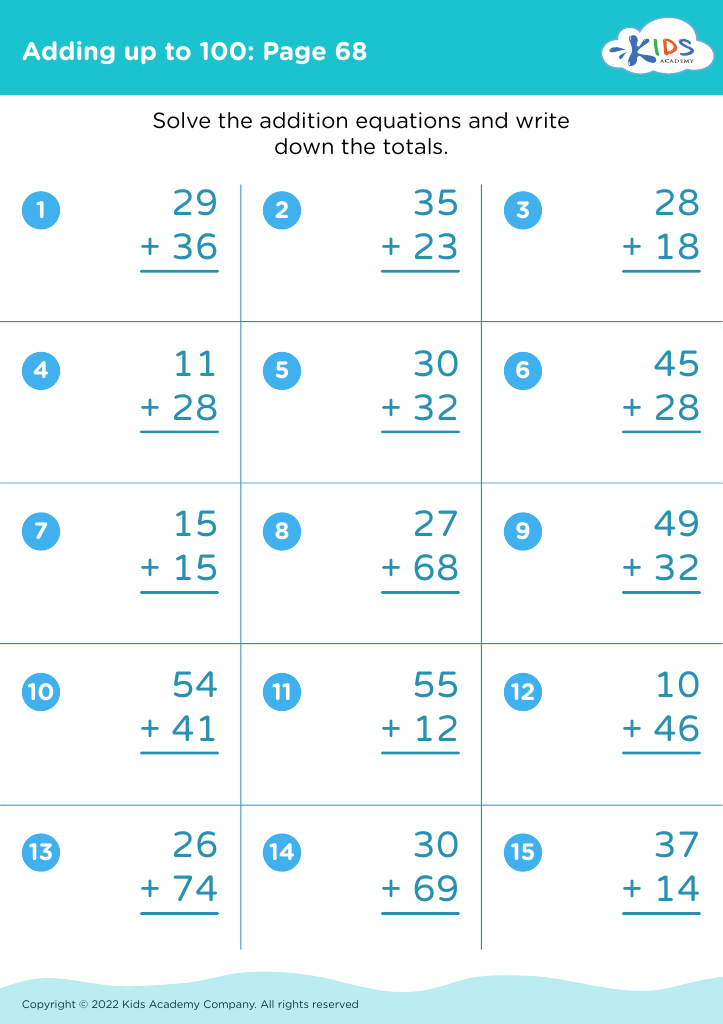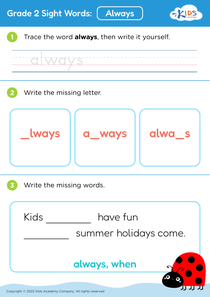Develop problem-solving skills Grade 2 Addition Worksheets
6 filtered results
-
From - To
Our Grade 2 Addition Worksheets are designed to develop your child's problem-solving skills effectively. Engaging and thoughtfully crafted, these worksheets introduce age-appropriate addition challenges to foster critical thinking and logical reasoning. Each activity not only reinforces basic math concepts but also encourages independent thinking, ensuring your child gains confidence in their abilities. Perfect for at-home learning or supplementary classroom practice, our worksheets aim to make math enjoyable and accessible. Help your second grader excel in math with our comprehensive, fun, and educational resources, laying a strong foundation for future academic success. Visit Kid's Academy for more!
Developing problem-solving skills in Grade 2 addition is crucial for young learners as it sets the foundation for future mathematical understanding and everyday life skills. At this stage, children are building their basic arithmetic abilities, and fostering strong addition skills can significantly enhance their cognitive development. By learning to solve addition problems, children cultivate critical thinking and analytical skills. They learn how to approach a problem, break it down into manageable steps, and devise a solution. This structured thinking process is not only vital for math but also for other subjects and practical life situations.
Moreover, addition is a fundamental concept in early mathematics, and proficiency in it paves the way for mastering more complex operations like subtraction, multiplication, and division. When children become comfortable with addition, they build confidence, which positively impacts their overall attitude towards math and learning in general.
Involving children in real-world problems, such as simple budgeting or measuring ingredients for a recipe, helps them see the relevance of addition in daily life. This practical application keeps them engaged and motivated to learn. Parents and teachers play a vital role in encouraging this development, offering praise, support, and a variety of engaging activities to make learning addition fun and meaningful.

